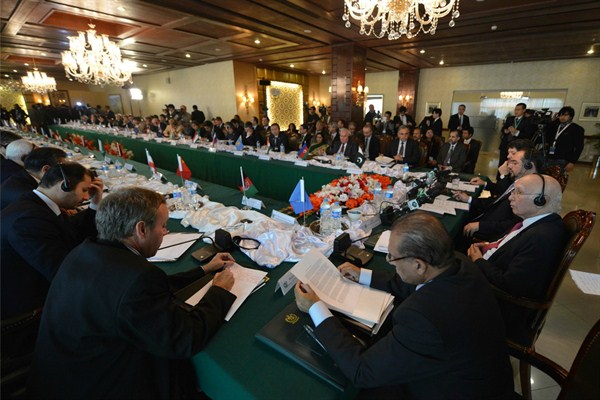Over two days last week, senior diplomatic officials gathered in Islamabad to participate in the Heart of Asia conference, a forum of Afghanistan’s neighbors and major international supporters that has been held annually since 2011. Despite domestic criticism over his outreach to Pakistan, Afghan President Ashraf Ghani attended the meeting, where participants, including Pakistan, China and the United States, voiced their support for the resumption of peace talks between the Afghan government and the Taliban.
Also in attendance was India’s foreign minister, Sushma Swaraj, marking the highest-level visit by an Indian diplomatic official to Pakistan since Indian Prime Minister Narendra Modi took office in May 2014. Swaraj’s presence at the summit was a reversal after lower-level talks were canceled this summer and last. She and her Pakistani counterpart announced a commitment to renew “comprehensive” dialogue, walking back from India and Pakistan’s insistence that talks could only move forward after discussions focused exclusively on terrorism or Kashmir, respectively. These diplomatic moves suggest that while Afghanistan’s worsening battle against the Taliban insurgency and the regional contest between India and Pakistan are each driven by their own unique dynamics, they are also closely interwoven, necessitating a multitrack effort if either is to be resolved.
Although quietly implemented, India’s significant economic investments and ties with some factional leaders in Afghanistan, including former President Hamid Karzai, contribute significantly to Pakistani fears of geostrategic encirclement by its longtime rival. Afghanistan on its own does not appear to represent a top-tier strategic concern for India, but New Delhi has been supportive of the post-2001 political order. It also retains an interest in counterbalancing Pakistan there and preventing Pakistani militant groups targeting India—like Lashkar-e-Taiba, responsible for the 2008 Mumbai attacks—from using Afghan bases to train and equip themselves.

